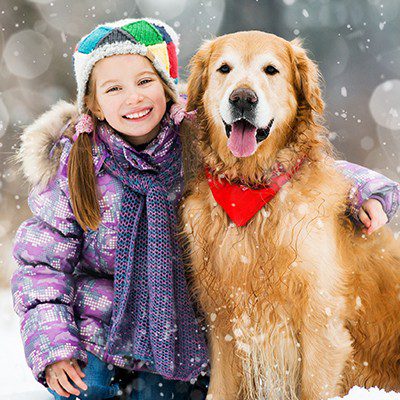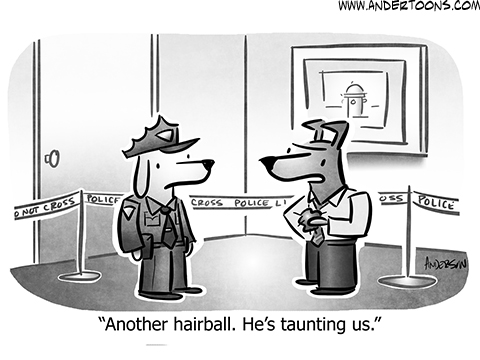The holidays are in full swing! Make sure your pet stays safe this time of year, because there are several holiday hazards to be aware of. Learn more in this article from your Roanoke, VA veterinary professional.
Ornaments and Decorations
Pets sometimes see those shiny holiday decorations—ornaments, tinsel, candles, etc.—as fun toys. But they can cause harm if a pet were to play with them. Tinsel can actually wrap itself around a pet’s intestines when swallowed, causing serious problems, and tree ornaments could break into sharp pieces and cut your pet’s mouth. Monitor your pet closely to make sure they don’t play with ornaments and decorations.
Holiday Plants
There are plenty of holiday plants that can hurt your dog or cat. The danger of poinsettias is somewhat overblown, but they can cause mouth or stomach irritation if enough is swallowed. Holly and mistletoe are actually more dangerous—these common holiday plants both contain toxins that can cause serious symptoms in animals. Lilies, common this time of year in bouquets and floral arrangements, are also very dangerous for cats, in particular. Don’t let your pet get too close!
Toxic Foods
All sorts of foods on your holiday dinner table could cause harm if your pet gets their paws on them. The list includes onions, garlic, shallots, scallions, chives, leeks, chocolate, candy, grapes and raisins, buttery or rich foods, macadamia nuts, and salty snacks, among others. Keep your far away from the dinner table, and make sure to put harmful foods inside closed containers or cabinets where pets can’t gain access.
Alcohol
Alcohol is very dangerous for pets. It actually affects cats and dogs in the same way it affects us! The difference is that it only takes small amounts to result in alcohol poisoning. This rule goes for liquor, wine, beer, and champagne, as well as foods cooked with alcohol, like rum cakes. Don’t let your pet sip alcoholic beverages of any kind, and never give your pet alcohol purposely.
Stress and Anxiety
The holiday season’s hustle and bustle can put undue stress on pets, especially if you’re hosting a party or family gathering this season. Set up a “safe zone” of sorts for your pet, complete with a bed and a few favorite toys, in a quiet, low-key area.
Want to know more about keeping your pet safe this holiday season? Call your Roanoke, VA veterinarian for help.







